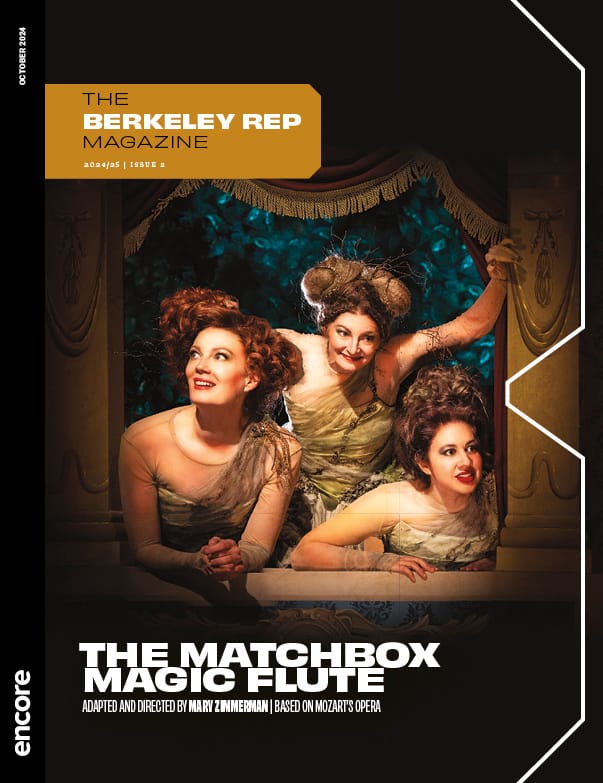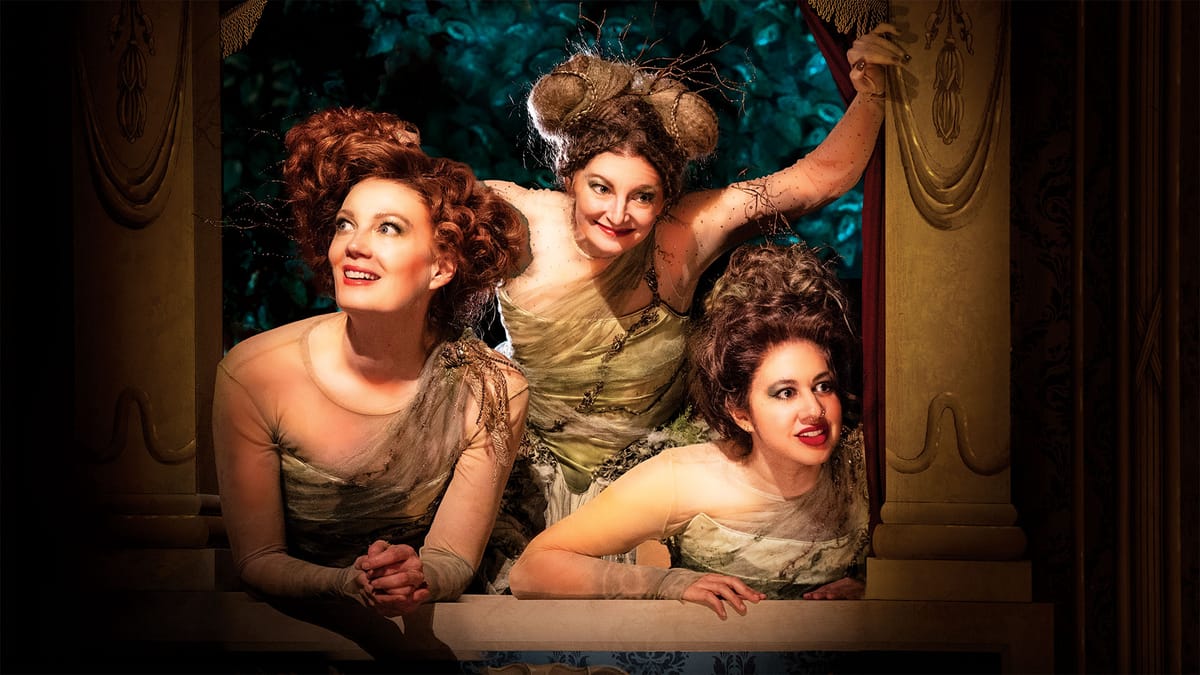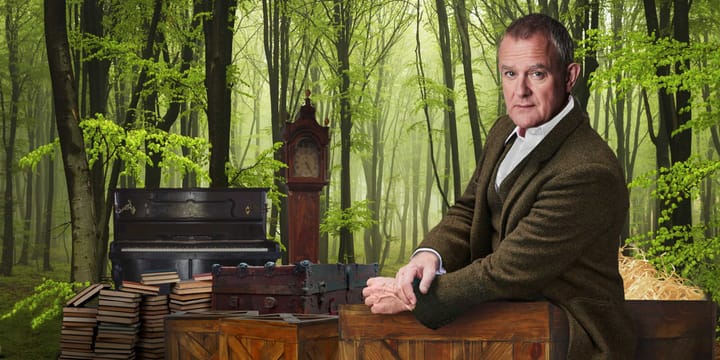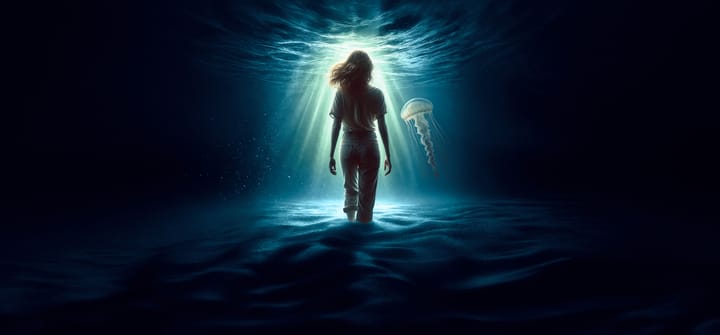October 18 – December 8, 2024 | Roda Theatre
In This Program
- A Welcome from the Artistic and Managing Directors
- Arts Access for All: How Berkeley Rep Has Expanded its Programming to Serve More Young People Than Ever
- The Meaning of Mozart
- Mozart & Mary: Mary Zimmerman on Bringing New Life to Mozart’s Final Opera
- Synopsis
- Show Program
- Making Theatre
- Print Edition
- More about Berkeley Rep
Welcome to Berkeley Rep
To ensure the best experience for everyone:
While always encouraged, masks are required inside the theatres during Sunday and Tuesday performances for the first three weeks of a show’s run.
Food and drink: Beverages in cans, cartons, or plastic cups with lids are welcome in the theatre during unmasked performances. Food is prohibited in the theatre during all performances.
Courtesy reminder: To avoid disruption to everyone, please turn off your cell phones, beeping watches, and electronic devices, and refrain from unwrapping cellophane wrappers during the performance. For the comfort of all patrons, please avoid wearing strongly scented personal products.
Photos: Photos may be taken in the theatre before and after the performance and during intermission. Photos and videos during the performance are strictly prohibited. Photos posted on social media must credit Berkeley Rep and the show’s designers.
Smoking and vaping: Berkeley Rep’s public spaces are smoke- and vape-free.
One of the joys of live theatre is the collective experience. Audience members respond to the show in many different ways. We invite you to join together and enjoy the show! If there is anything we can do to make your experience more enjoyable, please see a member of the house staff.
Get closed captioning on your smartphone! Closed Captioning is available for the following evening performances: September 19, 20, 22, 24, 25, and every matinee through October 17. Use your smartphone to scan this QR code:
Then, switch your WiFi to the network CCTheaterPeets. Password: cctheater1 When the CC page appears, choose English captions. If you’d like assistance, please see an usher or house manager.
Captions powered by CCTheater, from AccessTech, LLC.(info@getaccesstech.com)

From the Artistic Director
The first show of Mary’s that I saw was her inimitable Metamorphoses. Opening night in New York City in October, 2001, less that a month after the attack on the World Trade Center, was one of the most profound moments of collective catharsis I have ever experienced. Those ancient, epic stories, newly envisioned by one of our most vibrantly imaginative contemporary theatre-makers, allowed a way back, through grief, rage, and confusion, to a sense of shared purpose, community, and life force.
Though the tenor (no pun intended!) of Mary’s The Matchbox Magic Flute could not be more different, the exquisitely theatrical delight it bestows confirms that this story is manifested by that same capacious heart and imagination.
And while I confess that I sometimes find opera a bit daunting, Mary’s variation on Mozart’s last composition is actually a love letter to theatre itself, full of ancient references and delightfully witty olde time-y theatrical tricks and techniques. It’s a celebration of these inherently unreal worlds we all create together every time we take our places—whether on- or off-stage— to bring to life the stories that allow us to see ourselves anew, to gather the strength to fight the dragons, to fall in love, to celebrate, to mourn, to sing, as one.
Thank you for joining us.
Warmly,
Johanna Pfaelzer
Artistic Director
From the Managing Director
Welcome to The Matchbox Magic Flute, a shimmering jewel box of a production that reimagines Mozart’s beloved opera through the inventive and playful lens of Mary Zimmerman. We are thrilled to welcome Mary back to Berkeley Rep, where her productions have been beloved by audiences. In this production, the story’s whimsy, wonder, and timeless themes unfold within a miniature, matchbox-like setting, transforming the grand opera into an intimate and personal experience that is accessible to both opera lovers and newcomers alike.
This production continues Berkeley Rep’s tradition of producing boundary-pushing theatrical experiences that challenge form and redefine what theatre can be. As the year draws to a close, I hope you will join in sustaining our non-profit mission, productions, education programs, and community engagement initiatives—efforts that truly improve the lives of so many. Your tax-deductible gift, no matter the size, makes a dramatic difference. Thank you in advance for helping to spread the joy of live theatre with your support.
Subscription packages are also still available to enrich your life with creative exploration and meaningful connections. Full of illuminating stories and joyful discoveries that are sure to entertain, challenge, and inspire—including the upcoming world premiere adaptation of the best-selling novel The Thing About Jellyfish—we offer a variety of package options designed to suit your lifestyle and budget. Theatre also makes a wonderful gift, providing the opportunity to share precious time with friends or loved ones. Be sure to explore our gift certificates and specially priced ticket packages this holiday season.
Thank you for coming, and enjoy the show!
Tom Parrish
Managing Director
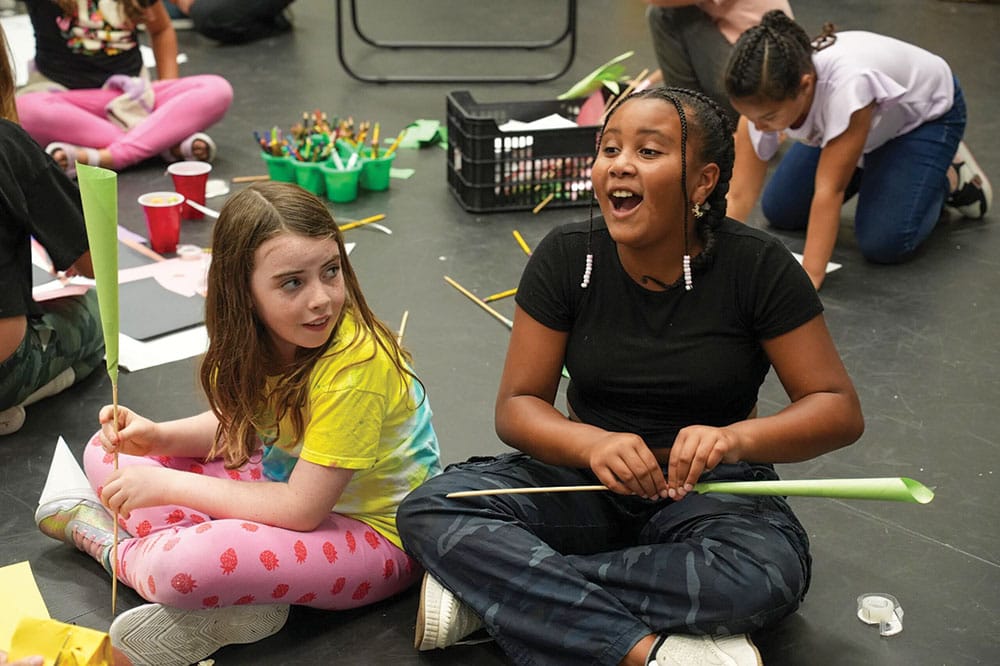
Arts Access for All
How Berkeley Rep Has Expanded its Programming to Serve More Young People Than Ever | By Ashley Lim
Ask any parent, educator, or mentor you know, and they will all agree on one thing: children are the best storytellers. With unbounded imagination and ravenous curiosity, young people learn about themselves and the world by creating and sharing stories that allow them to express themselves in a way few other mediums can. But as the nation struggles with teacher shortages and accessibility blocks even after the passing of Prop 28, the shrinking number of arts programs across California has become particularly alarming. With only 11% of California schools able to provide arts education as required by the state’s education code in 2023, students are receiving fewer opportunities for artistic enrichment than ever.
This is where Berkeley Rep comes in.
To assist in the growing need for accessible arts programming, the Berkeley Rep School of Theatre has expanded our youth-centric educational services in addition to a robust array of teen programming (Teen Council, High School Theatre Festival, Summer Intensive). This past year alone, we’ve grown our Story Builders and Change Makers workshops in our In-School Residencies, working in classrooms across the Bay Area and serving over 1,300 students by providing tools for literacy, communication, and advocacy. Over the summer, we launched a sold-out summer day camp for elementary students, who learned all different facets of theatre-making and even got to perform right here on Berkeley Rep’s Roda stage. During the school year, we began providing Saturday morning classes for elementary students using the same Play Creation curriculum introduced over the summer, where students are empowered to create their own play with original characters, sets, and costumes.
In addition to our programs within the classroom and at the Berkeley Rep School of Theatre, this year marks the debut of Berkeley Rep’s Theatre Explorers program. The Theatre Explorers add-on gives families the opportunity to experience Berkeley Rep in a new way: while parents and guardians enjoy Berkeley Rep’s mainstage shows, they can now bring their child (from grades 1-5) next door to the Berkeley Rep School of Theatre, to spend time playing theatre games and engaging in other fun, educational activities with a professional teaching artist.
“In our continued search for ways to eliminate access barriers for audiences to attend live theatre, this new program gives families a unique way to enjoy the theatre experience together,” says Anthony Jackson, Director of the School of Theatre. “Our Berkeley Rep community is always growing, and we’re thrilled to provide artistic enrichment for the next generation of theatre-goers, while their grownups experience the magic of Berkeley Rep right next door.”
Whether your first experience with Berkeley Rep is in the audience, the classroom, or the community beyond, we now have more ways than ever to spread the joy of storytelling. As our programming continues to expand to better serve young people and their families, we invite you to follow along at BerkeleyRep.org/School and give the gift of live theatre to the young person in your life!

The Meaning of Mozart
By Drew Lichtenberg
In 1768, when he was only 12, Mozart had already composed La finta semplice and Bastien und Bastienne. The Austrian Emperor Joseph II commissioned the Italian-style opera buffa. Another patron, the quack doctor and hypnotist Franz Mesmer, commissioned the Singspiel. German for “singing-play,” the form was a popular one. It mixed spoken and sung dialogue and drew upon vernacular sources with an omnivorous appetite. In the 1770s, still a teenager, Mozart would tour Italian courts and try his hand at opera seria. Back in Vienna, he kept writing incidental music for German-language plays and Singspiele.
In the 1780s, Mozart would work with Lorenza da Ponte, a Jewish freethinker and librettist, on a series of masterpieces. They premiered at public theatres in Vienna and Prague. But they featured sublime arias and musical forms drawing on the courtly Italian tradition. The Marriage of Figaro (1785), a “commedia par musica,” entangles and untangles plots across the social spectrum. The play is merry, but Louis XVI detested it, and with good reason. It enacts the tensions that would explode in the French Revolution. Don Giovanni (1788) is a dramma giocoso (“drama with jokes”). It tells the story of the legendary libertine, dragged to hell by a magical statue. But this metaphysical story is larded by the ironic perspective of his companion Leporello — a comic Sancho Panza to his tragic Don Quixote. The opera’s intense, terrifying ending transfigures into a gay opera buffa sextet. This untranslatable musical effect is like experiencing the deliquescence of a soul.
Mozart saved the best for last. The Magic Flute (Die Zauberflöte, 1791), Mozart’s last completed work before his tragic early death, is such stuff as dreams are made on. It shows his formidable musical technique reaching a vertiginous peak. It also is one of the great arguments for the pleasures to be found in popular theatre.
The piece had humble origins. It was the brainchild of Emanuel Schikaneder, Mozart’s friend and manager of the Theater auf der Wieden, a variety theatre in the Vienna suburbs. At the premiere, Mozart himself conducted. Schikaneder — a former traveling fiddler and member of a Shakespeare troupe — played Papageno. The result was a tremendous success. According to a contemporary account, to get a ticket you had to arrive at the theatre by mid-afternoon and wait for three hours. All the while, you were “bathed in heat and sweat and impregnated by the garlicky fumes of the smoked meats being consumed.”
If Italian opera was the craze of the 1770s, fairy-tale operas were now the thing. In 1789, Schikaneder’s company staged Karl Ludwig Giesecke’s Oberon. (Giesecke, a member of the same masonic lodge as Mozart and Schikaneder, would collaborate and act in The Magic Flute.) That same year, Jacob Liebeskind’s story “Lulu, or the Magic Flute” was published. Before The Magic Flute premiered, so too did another Liebeskind adaptation at a rival theatre: Die Zauberzither or The Magic Bassoon.
If Don Giovanni is a dark night of the soul touched by unexpected grace, The Magic Flute is its polar opposite. At first glance, it is a simple-seeming morality tale. It presents clear oppositions between good and evil: a dashing Prince, a kidnapped Princess, a sympathetic Fairy Queen, and the forbidding tyrant Sarastro. Upon further inspection, the play deepens into an examination of what the Germans call Sein und Schein, or appearance and reality. The Queen of the Night’s astonishing aria in Act 2 — one of the operatic repertory’s most challenging set pieces — is shrouded in menace. Sarastro — whose name suggests Zoroaster, the ancient Persian god of wisdom — similarly conjoins opposite aspects. Though gentle and kind, he forces Tamino and Pamina to undergo tests of mental and physical fortitude. Instead of operatic forebears, in fact, Mozart’s Queen and King suggest characters from Shakespeare. Like Oberon and Titania in A Midsummer Night’s Dream, they are the presiding sources of magic and authority, by turns beneficent and foreboding, placed in mutual opposition but forming an eventual concord.
Mozart’s score weaves these oppositions into an avaunt! Inspired, he uses different musical idioms for each character. The Queen of the Night and her Ladies sing impassioned coloratura straight out of the Italian tradition. Tamino’s music is likewise Italianate and classical in contour. Clowns Papageno and Papagena sing folk tunes straight out of the Singspiel repertory. Pamina sings in a Germanic, romantic register. Sarastro sings in a low bass of clarity and gravity, which some have suggested is Mozart’s attempt to write in a “Masonic Style.” George Bernard Shaw once said it was “the only music that could without fear be put into the mouth of God.”
In the final scene, all the plots and characters come together. The lovers and clowns share the stage. The Queen of the Night sings with Sarastro, the Sun King. For the finale, Mozart combines the Kyrie of the Latin mass with a Lutheran chorale, creating an effect at once Catholic and Protestant. At a time when Europe was split by religious wars, this was a radical gesture. Though it uses church aesthetics, the logic is ultimately a musical one, which is to say aesthetic, humanist, secular. If The Magic Flute is a fairy tale, it is one of the Enlightenment, in which the heightened consciousness approaches the realm of dream. It is also a hugely entertaining and beautiful time in the theatre. That is the meaning of Mozart.
This article has been edited for USE IN this publication.

Mozart & Mary
Mary Zimmerman on Bringing New Life to Mozart’s Final Opera
Above: Mary Zimmerman in the house of The Matchbox Magic Flute, Goodman Theatre, Chicago.
On WHY The Matchbox Magic Flute:
I think asking how or why I got the idea to adapt [Mozart’s] The Magic Flute is sometimes the wrong question. It’s like asking why you chose to fall in love with someone — it wasn’t a choice. The Magic Flute is a piece I’ve always loved. It has everything: dragons, adventure, villains, and an astonishing range of beautiful music (from extremely high arias to low, quartets, quintets, and trios). There are spoken scenes; it’s funny, and it signals that humor early on with the three ladies. They were funny hundreds of years ago, and they’re still funny today. Most of the work I’ve done has an epic quality to it and The Matchbox Magic Flute is no exception. There’s travel, danger, and adventure.
On Adaptation:
What keeps The Matchbox Magic Flute still The Magic Flute is Mozart’s music. Although the instrumentation is radically reduced, there are big cuts, and the style of singing is more music-hall than opera, the tunes are the same: The melodies and harmonies are intact, and that’s the heart of it. You can't abandon that. What’s new, is how I've lightened the tone of the libretto and taken out some of the heavier quasi-religious elements. I hope that through restructuring the second act and clarifying parts of the libretto, the story makes more sense. The way you adapt a text inevitably reflects your own tastes. In this case, I’ve removed the emphasis on the fraternal order. In the original, there’s a lot about not listening to women and bonding with men as the highest calling. That said, I think the misogyny in Mozart’s The Magic Flute is often overstated. The flute itself, the symbol of music and enchantment, with its power to create harmony and peace, is crafted by the Queen of the Night — supposedly the villain of the story. She made the flute at midnight, with only the moon for company — and that’s why we have music. So, there's a balance to this darker portrayal of women that often gets overlooked.
On the intersection of Theatre and Opera:
A key difference between opera and other forms, in terms of genre or structure, is that in opera, the music is the text. It’s both the text and the subtext. The lyrics make thought explicit, but the true voice, the dominating intelligence, is the music. When you’re directing a play, the main task — when working with actors — is negotiating how each line is delivered: the pitch, pace, volume, accent, and rhythm. We don’t reduce the process to such blunt terms, but that is how meaning is created. How a line is said — its rhythm, speed, and all those dynamics — are what shape the performance. In opera, all of those dynamics are pre-determined by the score. You can’t adjust the pitch, rhythm, or meter because they’re all fixed in the music. So, in the rehearsal room, the work is different. Your job as a director isn’t to shape the delivery in the same way you would in a play.
This is a theatrical adaptation of Mozart’s The Magic Flute, a hybrid, so I wanted to find the ways to bring the two worlds together. The Matchbox Magic Flute is so much about the theatre — it constantly quotes the theatre, not just in its archetypal story, but in its painted scenery, red velvet curtains, fake box seats, the shell footlights, trompe-l'œil painting. It is old-timey, I hope, in the best way. We use periaktoi for quick rotating scenic elements — an ancient Greek theatrical device. There’s an openness in how the actors double in roles, which you never see in opera. Yet, we have little chandeliers which rise at the top of the show, which is a nod to the chandeliers at The Met that rise as the lights dim. At the very beginning of the show, our Spirit strikes a cane on the floor three times, which is an old French tradition of calling the audience to attention (it was originally a signal to the rigging crew backstage). The production is full of these ancient theatre traditions, and its very artificiality is part of the spectacle.
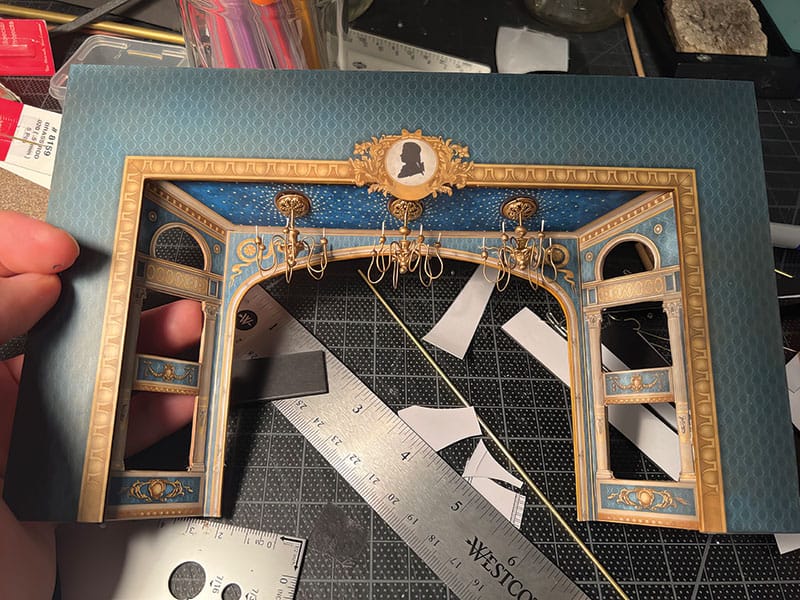
On the “Matchbox” of The Matchbox Magic Flute
I wanted to take something grand and compress it into something small while preserving as much detail, richness, and specificity as possible. I wanted it to feel as if you’re in a small 1700s theatre. I was inspired by the little private theatres you sometimes find in chateaux and palaces in Europe. They are extravagantly decorated, but only seat a few dozen people, with room for a tiny orchestra. They’re like toy theatres, but real performances would take place in them. I wanted to create that sense of overabundance—something grand but accessible—something that gives the audience a huge experience for the price of a theatre ticket. An opera scholar I deeply admire saw an early preview and told me, ‘I’m quite sure this is what it felt like when it first premiered’ and that made me very happy.
There’s a story about Bellini, who wrote the opera Norma. When it was a big hit, it moved to a larger theatre, and he wrote to a friend, starting his letter with ‘Fiasco! Fiasco! the theatre is too large — 600 seats!’ That’s so telling, considering that most opera houses today seat in the thousands. That enlarged scale demands a particular kind of singer and excludes many of the kinds of voices that Mozart originally worked with. There are many beautiful voices out there that will never sing opera simply because they don’t have the size for those massive spaces. Opera didn’t start out as the huge production it’s become. Back then, it was the popular music of its time, which is hard to convince people of today.
On returning to Berkeley Rep
When we were first rehearsing the show, putting it together, I was in a state of near constant ecstasy, like nothing I’ve ever experienced. I would drive home but keep driving past my house for an hour, up along the lake, even during tech rehearsals. I was just so high from the craftiness and cunning of the artists around me, steeped in this theatricality, and from the music, which never left my head for a second. I find that as we prepare to come to Berkeley – my theatrical home away from home – that excitement is rising in me again. And the tunes are haunting me.
Synopsis
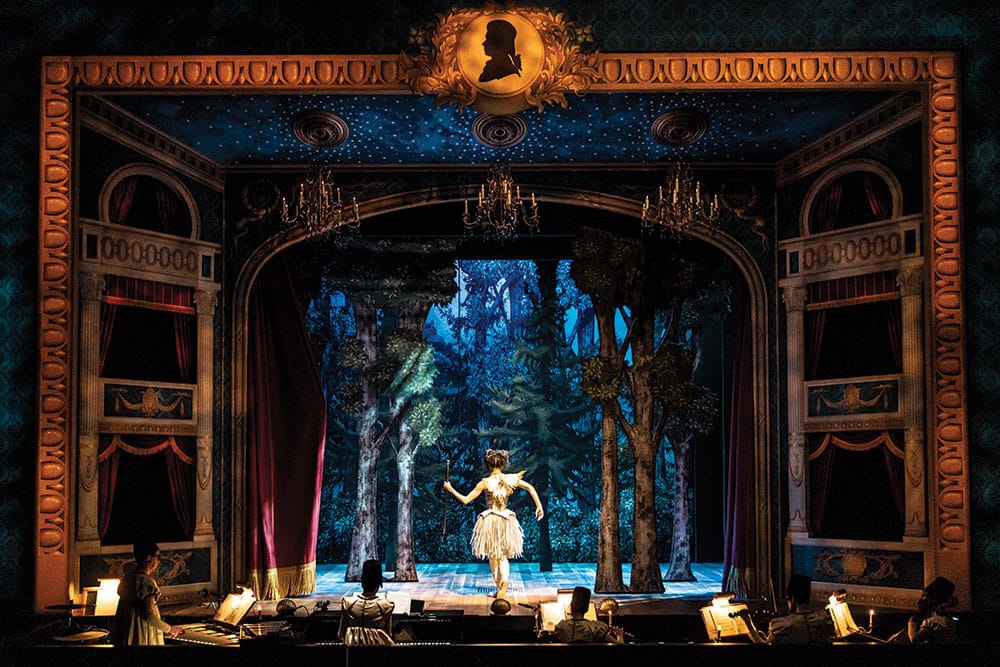
The action of The Matchbox Magic Flute takes place in various parts of a forest and in the Castle of Sarastro nearby.
The Matchbox Magic Flute is a variation on Mozart’s final opera, The Magic Flute, which premiered in 1791. It tells an archetypal story of the search for love and wisdom. As the tale begins, Prince Tamino finds himself lost in a strange wood, pursued by a dragon. He encounters three woodland Ladies, a lovelorn half-bird named Papageno, and the Queen of the Night. The Queen charges him with the rescue of her daughter Pamina, who has been abducted by Sarastro. What ensues is that quest, with surprising turns and revelations. Like its great predecessor, our miniature version is almost entirely sung through, with a smattering of little scenes.
Show Program
Berkeley Repertory Theatre
Johanna Pfaelzer, Artistic Director | Tom Parrish, Managing Director
presents
The Goodman Theatre Production of
The Matchbox Magic Flute
Adapted and Directed by
Mary Zimmerman
Based on the Opera by
Mozart
Scenic Design
Todd Rosenthal
Costume Design
Ana Kuzmanić
Lighting Design
T. J. Gerckens
Sound Design
André Pluess
Music Adapted and Arranged by
Amanda Dehnert & André Pluess
Music Director
Amanda Dehnert
Wig & Hair Design
Charles G. LaPointe
Stage Manager
Marne Anderson*
Assistant Stage Manager
Sofie Miller*
Director of Marketing and Audience Development
Voleine Amilcar
Associate Producer - New Work
Victor Cervantes Jr.
General Manager
Sara Danielsen
Finance Director
Jared Hammond
Director of Production
Audrey Hoo
Director of the School of Theatre
Anthony Jackson
Director of Development
Ari Lipsky
Associate Artistic Director
David Mendizábal
Director of Human Resources and Diversity
Modesta Tamayo
Director of Operations
Amanda Williams O’Steen
The Matchbox Magic Flute received its World Premiere at Goodman Theatre, Chicago, Illinois on February 10, 2024
Susan V. Booth, Artistic Director
Roche Schulfer, Executive Director/CEO
SEASON PRESENTING SPONSORS
Anonymous
Stephen & Susan Chamberlin
Yogen & Peggy Dalal
Bruce Golden & Michelle Mercer
Jonathan Logan & John Piane
The Strauch Kulhanjian Family
Gail & Arne Wagner


SEASON SPONSORS
Frances Hellman & Warren Breslau
Wayne Jordan & Quinn Delaney
Gisele & Kenneth F. Miller
Jack & Betty Schafer


SPONSORS
Sudha Pennathur & Edward Messerly
ASSOCIATE SPONSORS
Lynne Carmichael
Pat & Merrill Shanks
CAST
(in order of appearance)
Reese Parish
The Spirit
Billy Rude*
Tamino
Lauren Molina*
First Lady, Papagena
Monica West*
Second Lady (through Nov 10)
Ann Delaney*
Second Lady (from Nov 12)
Tina Muñoz Pandya
Third Lady
Shawn Pfautsch*
Papageno
Emily Rohm*
Queen of the Night
Russell Mernagh*
Monostatos, Armored Guard
Marlene Fernandez*
Pamina
Fernando Watts
Sarastro, Armored Guard
UNDERSTUDIES
(in alphabetical order)
Alicia Berneche
Queen of the Night, Second Lady
Daryn Whitney Harrell*
The Spirit, Third Lady
Josh Houghton*
Papageno
Nathan Karnik
Sarastro
Elliott Litherland*
Tamino, Monostatos, Armored Guard
Emma Rosenthal*
Pamina, Papagena, First Lady
MUSICIANS
Sheela Ramesh
Associate Music Director, Conductor
& Piano, Keyboard Glockenspiel
Ellie Falaris Ganelin
Flute / Piccolo
Brietta Greger
Percussion
Joshua Mikus-Mahoney
Cello
Christina Walton
Violin
Understudies never substitute for listed performers unless a specific announcement or notice is made at the time of appearance.
*Member of Actors’ Equity Association, the Union of Professional Actors and Stage Managers in the United States.
Musicians in this production are members of Musicians United Local 6, American Federation of Musicians.
This theatre operates under agreement with the League of Resident Theaters, Actors’ Equity Association (the union of professional actors and stage managers in the United States), the Stage Directors and Choreographers Society, and United Scenic Artists.




Opening Night: October 23, 2024
RODA Theatre
Run time is 2 hours including one 15-minute intermission
For This Production
Assistant Director
Xiaoyu (Mary) Liu (Peter F. Sloss Artistic Fellow)
Associate Scenic Designer
Sotirios Livaditis
Associate Lighting Designer
David Goodman-Edberg
Assistant Lighting Designer
Ryan Osborn, Renata Taylor-Smith (Lighting Fellow)
Associate Sound Designer
Brandon Reed, Nick Canepa
Assistant Sound Designer
Kaileykielle Hoga (Harry Weininger Sound Fellow)
Dragon Puppet & Animal Head
Chicago Puppet Studio
Production Assistant
Trinity Wicklund (Stage Management Fellow)
Deck Crew
Siobhan Slater, Oxford Muir Lewis
Wardrobe
Caz Hiro (Interim Wardorbe Supervisor), Emily Mills
Lighting Programmer / Production Electrician
Kenneth Cote
Sound & Video Show Crew
Akari Izumi (A1), Camille Rassweiler (A2)
Scenery, Costumes & Properties fabricated by The Goodman Theatre
Scenery Load In Crew
Carl Martin, Maggie Wentworth, Isaac Jacobs, Cameron Edwards,
Caleb Knopp, Cassidy Carlson (Scenic Construction Fellow)
Additional Scenic Artists
E Wayman, Kenzie Bradley, Caitlyn Brown (Scenic Art Fellow)
Additional Props Artisans
Brittany Watkins, Jason Joo (Props Fellow)
Additional Costume Shop Crew
Chris Weiland, Breanna Bayba, Moose Gavin, Amanda Geyer (Costumes Fellow)
Lighting Services provided by Berkeley Repertory Theatre Lighting Department
Additional Lighting Technicians
Amy Abad, Angelina Costa, Brittany Cobb, C. Swan-Streepy, Charlie Mejia, A. Chris Hartzell, Emma Buechner, Frankie Aranguren, Hannah Linaweaver, Jack Grable, Jacob Hill, Margaret Linn, Matthew Sykes, Nori-Hayden Quist, Riley Richardson, Shy Baniani, Taylor Rivers
Sound Services provided by Berkeley Repertory Theatre Sound and Video Department
Additional Sound Technicians
C. Swan-Streepy, Camille Rassweiler, Courtney Jean, Olivia Vazquez
Production Manager
Kali Grau
Assistant Production Manager
Rhea Mehta (Production Management Fellow)
Interim Company Manager
Ryan Duncan-Ayala
Assistant Company Manager
Katie Anthony (Company Management Fellow)
Associate Casting Director
Karina Fox
Contractor
David Möschler
Original Casting by Lauren Port, CSA
Medical Consultation for Berkeley Rep provided by
Agi E. Ban DC, John Carrigg MD, Cindy J. Chang MD, Christina Corey MD, Neil Claveria PT, Patricia I. Commer DPT, Kathy Fang MD PhD, Steven Fugaro MD, Olivia Lang MD, Allen Ling PT, Liz Nguyen DPT, Christina S. Wilmer OD, and Katherine C. Yung MD
Artist Bios
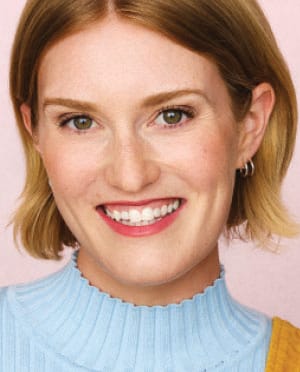
Ann Delaney
Lady 2 (from Nov 12)
is thrilled to be making her Berkley Rep debut! Regional: Matchbox Magic Flute (Goodman Theatre); It Came From Outer Space (Chicago Shakespeare Theater); The Full Monty, Little Shop of Horrors, Into The Woods, and Newsies (Paramount Theatre); A Gentleman’s Guide to Love and Murder (Porchlight Music Theatre); Buddy: The Buddy Holly Story (American Blues); All Our Tragic (The Hypocrites); Cabaret, Big Fish (Theatre At The Center); Hairspray (Skylight Music Theatre). TV: Chicago Fire (NBC) and The 4400 (The CW).
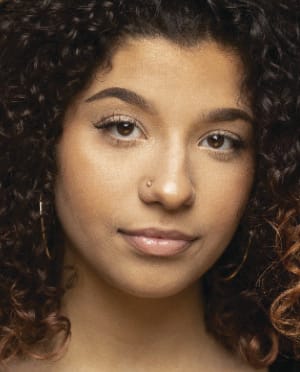
Marlene Fernandez
Pamina
(she/her)
is thrilled to make her Berkeley Rep debut returning to this magical production. She previously appeared in the show’s engagements at the Goodman Theatre and Shakespeare Theatre Company. Regional: In the Heights (The Muny/STAGES St. Louis). Commercial: Defining Legacy. BFA Musical Theatre from Penn State University. @shmarlene @shmakeupbyshmarlene
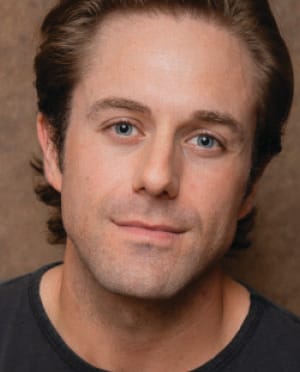
Russell Mernagh
Monostatos /
Armored Guard #1
is thrilled to bring The Matchbox Magic Flute to the Bay! Recent credits include previous Flutes at Shakespeare Theatre Company and the Goodman Theatre. Off-Broadway: The Play That Goes Wrong. Chicago: Broadway in Chicago, Chicago Shakespeare Theatre, Goodman Theatre, Drury Lane, Marriott Theatre, and the Paramount. Big thanks and gratitude to my castmates who have made the year of the Flute a great one. Love y’all. Russell is repped by Stewart Talent. IG: @Astheworldmerns
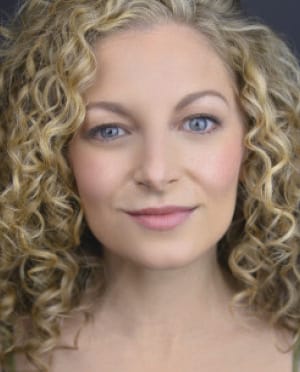
Lauren Molina
Papagena / Lady 1
Broadway: Sweeney Todd; Rock of Ages. Off-Broadway: Plays for the Plague Year; Goldie, Max & Milk; Desperate Measures (Lucille Lortel, Outer Critics Circle Award nomination); Marry Me a Little; Nobody Loves You. She is the co-creator of the acclaimed comedy-pop band The Skivvies. Regional: The Matchbox Magic Flute (Shakespeare Theatre Company, Goodman); You’re a Good Man, Charlie Brown (Cincinnati Playhouse); Candide (Helen Hayes Award; Huntington, Goodman, Shakespeare Theatre); Little Shop of Horrors (Cleveland Play House); Assassins (Yale Rep); A Little Night Music (Huntington); The Rocky Horror Show (Bucks County Playhouse). Laurenmolina.com, Insta: @lomo212
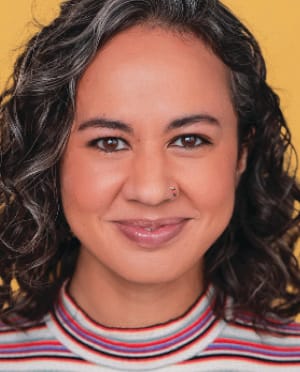
Tina Muñoz Pandya
Lady 3
(she/her)
is an actor, musician, and teaching artist based in Chicago, where her credits include: The Matchbox Magic Flute (Goodman Theatre); London Road and The Tall Girls (Shattered Globe Theatre); The Secretaries (First Floor Theater); Mr. Burns (Theater Wit); The Mousetrap (Court Theatre); and Octagon (Jackalope Theatre). Regional credits include: The Matchbox Magic Flute (Shakespeare Theatre Company); As You Like It and The Old Man and the Old Moon (Door Shakespeare); Matt and Ben (Penobscot Theatre); House of Joy (St. Louis Rep); and The Hypocrites’ Gilbert and Sullivan Rep. Audio dramas: The Vanishing Act and Fawx and Stallion. Tina is a proud graduate of the University of Michigan and is represented by Gray Talent Group.
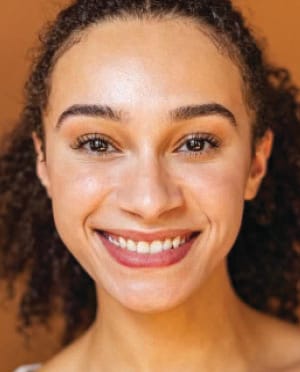
Reese Parish
The Spirit
who graduated this June from DePaul University with her BFA, is thrilled to be making her Berkeley Rep debut with the 3rd run of The Matchbox Magic Flute! Other theatre credits include The Matchbox Magic Flute (Goodman Theatre, Shakespeare Theatre Company); Southern Gothic (Windy City Playhouse); West Side Story, Everybody, and Lost Girl (Milwaukee Repertory Theater); Annie Jump, Bliss: or Emily Post is dead (Renaissance Theaterworks); The Wiz, Midnight Cry (First Stage Children’s Theater); Spring Awakening, The Seagull (DePaul University). TV/Film: Emperors of Ocean Park (MGM+). Reese is proudly repped by Paonessa Talent.

Shawn Pfautsch
Papageno
(he/him)
Berkeley Rep credits: The Hypocrites’ Pirates of Penzance (Pirate King). Regional/Chicago credits: The Matchbox Magic Flute (Goodman Theatre); Theatrical Essays (Steppenwolf); Phantom Folktales (Pigpen Theatre/Virgin Voyages); Hamlet, Henry IV, The Seagull, A Flea in Her Ear (Michigan Shakespeare Festival); The Hypocrites’ Gilbert & Sullivan Rep (Skirball Center (NYC), Olney Theatre, Pasadena Playhouse, American Repertory Theater (Boston), Actors Theatre of Louisville). TV: Chicago Med (NBC); The Mob Doctor (Fox/Sony). Training: Southern Methodist University, BFA in Theatre Studies. Instagram: @shawnpfautsch
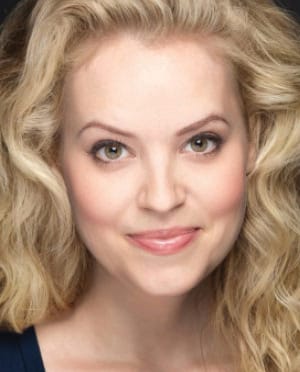
Emily Rohm
Queen of the Night
Berkeley Rep debut! Regional highlights: Brigadoon (Goodman); Nell Gwynn, Ride the Cyclone, Beauty and the Beast (Chicago Shakespeare Theater); Carousel (Lyric Opera); Mary Poppins, The Music Man, Sweeney Todd, Fun Home (Paramount Theatre); Les Misérables, An American in Paris (Drury Lane); Jim Henson’s Emmett Otter’s Jug Band Christmas (Studebaker). Off-Broadway: Ride the Cyclone (Lucille Lortel Award Nominee). TV: Chicago Fire (NBC); Somebody Somewhere (HBO). She is featured on the Ride the Cyclone cast album, and you can hear her solo album Traveling Show on all streaming platforms. Follow @emilyrohm on TikTok/Instagram
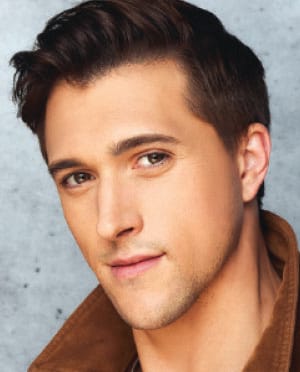
Billy Rude
Tamino
is proud to return with his Goodman cast here at Berkeley Rep. Touring credits include Million Dollar Quartet (Gershwin Entertainment). Regional credits include Sunset Boulevard (Porchlight Music Theatre); Grease (Drury Lane Oakbrook); Murder for Two (Marriott Theatre); Blue Heaven (Black Ensemble Theatre); Million Dollar Quartet (Laguna Playhouse); South Pacific (Billings Symphony). TV/Film: Chicago PD (NBC). Billy was the recipient of the 2023 Berkshire Theatre Critic’s Award (Outstanding Lead Actor in a Musical).
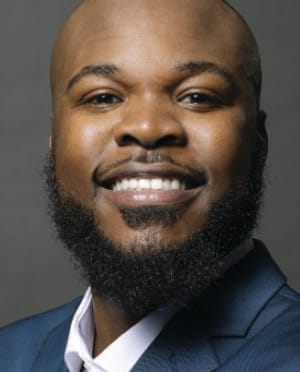
Fernando Watts
Sarastro / Armored Guard #2
is so excited to be making his Berkeley Rep debut as Sarastro. He has just graduated from the Manhattan School of Music with his Master of Music degree and will be taking on The Magic Flute for the third time in his early career. His performance credits include Sarastro in The Magic Flute (Manhattan School of Music); Il Commendatore in Don Giovanni (Chautauqua Institute); Harasta in The Cunning Little Vixen (Chautauqua Institute); The Chair & The Tree in L’enfant et Les Sortilèges (Manhattan School of Music); Sarastro & Sprecher in The Magic Flute (Lyric Opera of Weimar Germany); and The LoudSpeaker in Der Kaiser von Atlantis (Manhattan School of Music). Instagram: @100_Wattz
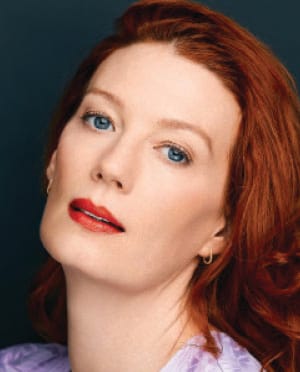
Monica West
Lady 2 (through Nov 10)
(she/her)
Berkeley Rep debut. Chicago: The Matchbox Magic Flute, The Music Man (Goodman Theatre); Eastland, Moby Dick (Lookingglass Theatre Company); Hand to God (Paramount Theatre). Off-Broadway: The Glass Menagerie (Roundabout Theatre Company); Red Light Winter (Barrow Street Theatre); Germans in Paris (59E59); A Contemporary American’s Guide to Marriage, 1959 (Cherry Lane Theatre). Toronto: Dirty Dancing (Royal Alexandra Theatre). Regional highlights: Guthrie Theatre, Shakespeare Theatre Company, Actors Theatre of Louisville, Westport Country Playhouse. TV: Chicago Med, Chicago Fire, Law & Order, and Underemployed. Ms. West is an MFA candidate in writing at The School of the Art Institute of Chicago. monica-west.com
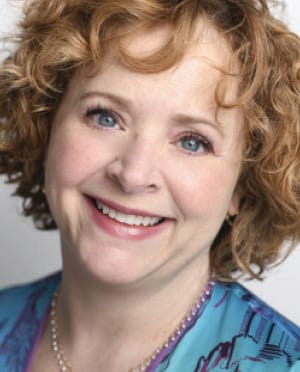
Alicia Berneche
u/s Queen of the Night / Lady 2
(she/her)
has starred on stages around the globe, including as Lyric Opera of Chicago’s Daisy Buchanan in The Great Gatsby, Helen Niles in Mourning Becomes Elektra, Second Niece in the celebrated Peter Grimes, and Susanna understudy/bridesmaid for the dream cast Le Nozze Di Figaro. She has originated roles in world premiere operas, including Philip Glass’ and Mary Zimmerman’s Galileo, Galilei at the Goodman Theatre. Recent performances include Letitia Primrose in On The Twentieth Century with Blank Theatre Company, and Martha Watson in White Christmas, Agnes Gooch in Mame, and Nettie Fowler in Carousel with Music Theater Works.
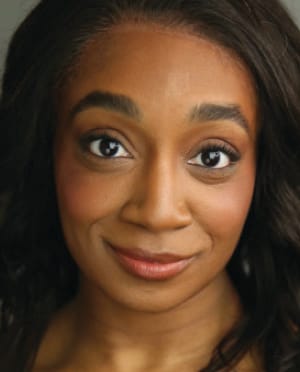
Daryn Whitney Harrell
u/s Lady 3 / The Spirit
Berkeley Repertory Theatre debut! Recently seen in the World Premiere of Midnight in The Garden of Good and Evil (Goodman Theatre). Other Chicago credits: Beautiful, The Carole King Musical (Marriott Theatre); Louise in Gypsy (Porchlight Music Theatre); She the People (Second City) and Queenie Pie (Chicago Opera Theater). National tour credits: The Play That Goes Wrong, The Book of Mormon, and Jovie in Elf The Musical. TV/Film Credits: Chicago Med, Justified: City Primeval, Utopia, and Empire. Harrell was named in the 2019 Chicago Tribune’s Class of Hot New Faces. Represented by Gray Talent Group. Philippians 4:13. @DarynWHarrell

Josh Houghton
u/s Papageno
Regional theatre: The Merry Wives of Windsor (Lake Tahoe Shakespeare Festival/Idaho Shakespeare Festival/Great Lakes Theatre); ELF (Arvada Center); Priscilla, Queen of the Desert (Mercury Theater Chicago); Personality: the Lloyd Price Musical (Studebaker Theatre); The Sound of Music (Paramount Theatre); How the Grinch Stole Christmas (National Tour/Grand Ole Opry); HAIR, Tommy, Spamalot (Short North Stage). TV: Chicago P.D. (NBC). Education: BFA, The New School. Thank you to Mary, Amanda, Andre, and Gray Talent Group. josh-houghton.com
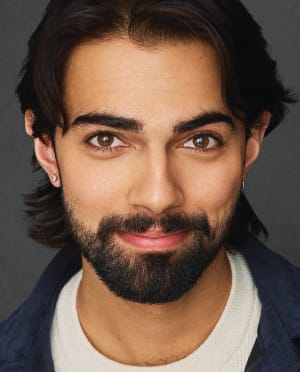
Nathan Karnik
u/s Sarastro
(he/him)
is so excited to be making his Berkeley Rep debut! Chicago: The Matchbox Magic Flute (Goodman Theatre); Peter and the Starcatcher (Paramount Theatre); Beauty and the Beast (Chicago Shakespeare Theatre); The Little Mermaid (Music Theatre Works); Drood (Blank Theatre Company). New York: Ghost Girls (MTC). Regional: Sweeney Todd (Hangar Theatre); The Matchbox Magic Flute (Shakespeare Theatre Company); A Christmas Carol (IRT). Film: Same Love. Training: Northwestern University (Musical Theatre, Performance Studies, Economics). IG: @naykay13 nathankarnik.com. Thanks to my friends and family for always supporting me!
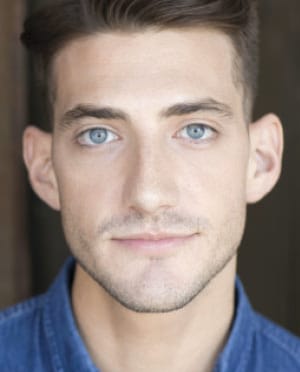
Elliott Litherland
u/s Tamino / Monostatos
(he/him)
Change is good. Concerts: Opera North, Gainesville Orchestra, Transcendence. Theatre: Walnut Street, Westchester Broadway, Arrow Rock Lyceum, The Argyle, AMT, Palm Beach Dramaworks, Mason Street Warehouse. Thanks to Mary, Russell, and the whole team for welcoming me into this company. Many thanks to Mikey at the collective. Thank you to my wife, Becca, my family, and Richie. Most of all thank you for being here and supporting live theatre. elliottlitherland.com @elliottlitherland
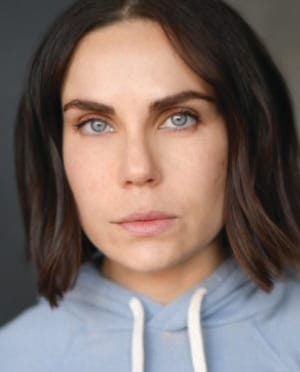
Emma Rosenthal
u/s Pamina / Papagena / Lady 1
Chicago: The Flying Lovers of Vitebsk (Northlight); Fiddler on the Roof, Peter and the Starcatcher, Beauty and the Beast (Drury Lane Oakbrook); Big Fish, Hello, Dolly! (Marriott Lincolnshire); Athena (Writers Theatre); The Fantasticks (Porchlight); The Tempest (Steppenwolf); Brigadoon, Candide (Goodman). Off Broadway: The Threepenny Opera (Marvell Rep, Drama Desk Nomination: Best Musical); Liberty (Theatre80). Regional: Indiana Repertory Theatre, Peninsula Players, Weston Playhouse, Cardinal Stage, Williamstown Theatre Festival. A graduate of Northwestern University, Emma is also a competitive powerlifter and pastry chef (you may have seen her on Fox’s Crime Scene Kitchen). Endless thanks to Mary and the entire Matchbox Magic Flute crew, to Gray Talent Group, and to Mom, Aaron, and Phil.
Sheela Ramesh
Associate Music Director, Conductor
& Piano, Keyboard Glockenspiel
is a music director and composer, and was recently named a “Woman to Watch on Broadway” by the Broadway Women’s Fund. Professional highlights: Broadway (SIX, Almost Famous, Once Upon a One More Time, Merrily We Roll Along, Hells Kitchen); Off-Broadway (Lincoln Center Theater, New York Theatre Workshop, The York, Theatre Row); TV (NBC’s Annie Live!); development (The Karate Kid, Bliss, A Transparent Musical, The Lunchbox, Diamond Alice, Jeannette, and more). Sheela received undergraduate and graduate degrees in music at Carnegie Mellon University and the Royal College of Music. She also holds degrees in psychology/cognitive science (BS, Carnegie Mellon; MSc, University College London) and law (JD, Yale Law School).
Joshua Mikus-Mahoney
Cello
(he/him)
Joshua is delighted to return to Berkeley Rep, having previously originated the Cello chair for the world premiere musicals Galileo and Swept Away. Other recent credits include the world premiere of the opera Bulrusher by Eisa Davis & Nathaniel Stookey (West Edge Opera) and Henry Purcell’s Dido & Aeneas (Festival Opera). Joshua can be heard on the debut single “Even After” by Charlie Mitchell and the Broadway By the Bay holiday albums Home For The Holidays & All Is Bright. He holds a MM in Cello Performance from the University of Washington, and a BM in Cello Performance from Chapman University.
Christina Walton
Violin
(she/her)
is a violinist and actor based in the SF Bay Area. She serves as concertmaster for the Oakland Civic Orchestra and leader of The Dynamic Miss Faye Carol’s string quartet. Favorite stage roles combine acting and violin, such as Park Ranger in Jessica Kahkoska’s Wildfire (Z Space) and Ex-Girlfriend in Once (42nd Street Moon). She previously performed at Berkeley Rep as a musician for Ain’t Too Proud and Paradise Square. Christina studied the violin in her hometown of Greenville, SC, and holds a BFA in Musical Theater from Brenau University and an MFA in Acting from ACT.
Ellie Falaris Ganelin
Flute / Piccolo
(she/her)
is a flutist and music director who is classically trained and welcomes other traditions into the fold, including jazz, Latin, Balkan and klezmer music. She is active as a performer of chamber and orchestral music in the San Francisco Bay Area and as a touring artist around the U.S. She is committed to making classical music inviting and accessible for all as an ambassador and performer for the Awesöme Orchestra Collective. For the past decade, she has been the director of the Kombos Collective, which aims to inspire, educate and challenge audiences through innovative programming that celebrates the Hellenic world. Ellie received her B.A. in Music from the University of Maryland, where she also holds a B.A. in Journalism and a Minor in French.
Brietta Greger
Percussionist
is a Bay Area percussionist with a Master of Fine Arts degree from CalArts. She specializes in avant-garde chamber music, musical theatre, and hand drums, including tabla, riq, congas, and pandeiro. A composer, improviser, recording artist, and teacher, Brietta can be found performing with Monterey County Pops, Nueva Big Band, Will Rees Band, and in musical theatres throughout the Bay Area. She teaches at Monticello Academy, Davis Intermediate School, and The Rhythm Academy, and coaches percussion for the Blue Devils Wind Symphony.
Mary Zimmerman
Adaptor and Director
Mary Zimmerman is a playwright and director of theatre and opera based in Chicago. She is the 1998 recipient of a MacArthur Fellowship, the 2002 Tony Award and Obie for Best Director (for her play Metamorphoses), and many Chicago Joseph Jefferson Awards, including Best Production and Best Director. She is a member of Lookingglass Theatre Company in Chicago, an Artistic Associate of the Goodman Theatre, and The Jaharis Family Foundation Endowed Chair of Performance Studies at Northwestern University.
She specializes in the adaptation of classical texts for the stage. Works that she has adapted and directed include The Steadfast Tin Soldier (Lookingglass), Treasure Island (Lookingglass and Berkeley Rep), The Jungle Book (Goodman, Huntington Theatre Company), The White Snake (Oregon Shakespeare Festival, Berkeley Rep, Goodman and McCarter Theatres and the Wuzhen Theatre Festival in China), Argonautika (Lookingglass, Berkeley Rep, The Shakespeare Theatre Company, McCarter Theatre Center), Candide (Goodman, Shakespeare Theatre Company, Huntington), Mirror of the Invisible World (Goodman), The Notebooks of Leonardo da Vinci (Goodman, Brooklyn Academy of Music, Seattle Rep, Second Stage Theater), The Odyssey (Lookingglass, Goodman, McCarter, Seattle Rep, and the Oregon Shakespeare Festival), Arabian Nights (Lookingglass, Manhattan Theatre Club, BAM, Berkeley Rep, Kansas City Repertory Theatre, Arena Stage), Journey to the West (Goodman, Huntington, Berkeley Rep), Metamorphoses (Lookingglass, Seattle Rep, Berkeley Rep, Mark Taper Forum, Second Stage, and on Broadway at Circle in the Square), The Secret in the Wings (Lookingglass, Berkeley Rep, McCarter, Seattle Rep), Eleven Rooms of Proust (Lookingglass, About Face Theatre), and a new opera with Philip Glass called Galileo, Galilei (Goodman, Barbican in London, BAM). Her plays – particularly Metamorphoses, The Secret in the Wings (based on fairy tales) and The Odyssey – are produced over 100 times each year around the world in universities, high schools, and other amateur and professional venues. For the Metropolitan Opera, she has directed Lucia di Lammermoor (also at La Scala, Milan), Armida, La Sonnambula, Rusalka, Eurydice, and Florencia en el Amazonas, all of which have been broadcast live worldwide.
Amanda Dehnert
Music Director, Music Adapter and Arranger
Chicago: The Steadfast Tin Soldier, Lucy & Charlie’s Honeymoon, Eastland: A New Musical, Peter Pan - a Play (Lookingglass Theatre Co); Iphegenia In Aulis (Court Theatre), Shining Lives: A Musical (Northlight Theatre). Off-Broadway: Kate Hamill’s Pride and Prejudice (Cherry Lane). Regional: Love’s Labor’s Lost, Timon of Athens (Oregon Shakespeare Festival); The Verona Project (California Shakespeare Theatre); The Cider House Rules, As You Like It (Trinity Repertory Co); A Christmas Carol (Cutler Majestic Boston)
Todd Rosenthal
Set Design
Select Broadway: August Osage County (Tony Award), The Motherfucker with the Hat (Tony nomination), Who’s Afraid of Virginia Woolf, Of Mice and Men, This is Our Youth, Straight White Men, Linda Vista, and the upcoming Purpose and Eureka Day. International: August Osage County (London, Australia); Nice Fish, Downstate (London); Madama Butterfly, The Beauty Queen of Leenane (Ireland), Life After (Toronto). Exhibitions: Mythbusters: The Explosive Exhibition; International Exhibition of Sherlock Holmes, Victoria: T-Rex. Rosenthal also designs in Chicago and at many regional theatres around the country. Awards: USITT Distinguished Achievement, Olivier, Helen Hayes, Ovation, Joseph Jefferson, Michael Merritt. Professor, Northwestern. Graduate, Yale Drama.
Ana Kuzmanić
Costume Design
is a Yugoslav-born designer for theatre and opera. She returns to Berkeley Rep where she most recently designed costumes for Treasure Island. Kuzmanić’s design work was seen on Broadway (including August: Osage County), Off-Broadway, and in numerous opera houses across the US, including Florencia En El Amazonas at the Metropolitan Opera last season. Ana’s costume design work has been exhibited in Mexico, People’s Republic of China, Russian Federation, as well as many other countries across Asia, Europe, and North America. Kuzmanić is a Professor of Costume Design at Northwestern University. anakuzmanic.com
T.J. Gerckens
Lighting Design
Berkeley Rep: Metamorphoses, Treasure Island, Secret in the Wings, Arabian Nights, The Notebooks of Leonardo DaVinci, White Snake, and Journey to the West. Recent designs include Swan Lake (Australian Ballet; Sydney Opera House, Melbourne, Brisbane Adelaide). Other designs include Metamorphoses (on and off Broadway, regional) Florencia en el Amazonas, Eurydice, Rusalka, La Sonnambula, and Lucia di Lammermoor (Metropolitan Opera). His awards include the Drama Desk, Lortel, Jefferson, Bay Area Critic’s Circle. He has designed at theatres such as the LaScala Opera House, Goodman, La Jolla, Guthrie, Arena Stage, Mark Taper Forum, Barbican (London), Delacorte, and Lookingglass. T.J. teaches at Otterbein University.
André Pluess
Music Adapter and Arranger
Broadway credits include Good Night, Oscar (Belasco), The Minutes (Studio 54); 33 Variations (Eugene O’Neill Theatre); I Am My Own Wife (Lyceum Theatre) and Metamorphoses (Circle in the Square). Off-Broadway credits include The Clean House (Lincoln Center); Milk Like Sugar and BFE (Playwrights Horizons). Regional credits include multiple productions with the Oregon Shakespeare Festival, McCarter Theatre, Center Theatre Group, Arena Stage, Steppenwolf, Chicago Shakespeare, Williamstown Theater Festival, La Jolla Playhouse, The Huntington, and South Coast Repertory. Based in Chicago, he is an ensemble member of Lookingglass Theatre Company.
Charles G. LaPointe
Hair and Wig Design
Berkeley Rep: Ain’t Too Proud. Award winning designer who maintains a highly successful career on stages throughout the US and abroad. Numerous Broadway, touring, international, and West End productions including: Hamilton (Make-Up Artists / Hair Stylist Guild Award); MJ; Tommy; SIX; Suffs; The Wiz; Ain’t Too Proud; Beetlejuice; The Cher Show (Drama Desk Award); SpongeBob SquarePants (Drama Desk Award); Anastasia; The Band’s Visit; A Gentleman’s Guide…; Newsies; In the Heights. Television: The Wiz Live! (Emmy Award nomination); Hairspray Live!; Jesus Christ Superstar Live! (Emmy Award nomination and Make-Up Artists & Hair Stylist Guild Award).
Chicago Puppet Studio
Puppet Design
is the design and fabrication wing of the Chicago International Puppet Theater Festival and is co-directed by Blair Thomas and Tom Lee. They are thrilled to collaborate with Mary Zimmerman once again. The studio has designed and created puppetry for The Metropolitan Opera in NYC, Alliance Theatre, Goodman Theatre, Ma-Yi Theater Company, Out of the Box Theatrics, Oregon Shakespeare Festival, Kennedy Center, Lookingglass Theatre, Shakespeare Theatre Co DC, House Theatre Chicago, Joffrey Ballet, Whitesnake Productions, and many more. The studio offers professional level training and classes at their workshop in the Fine Arts Building Chicago. chicagopuppetfest.org
Marne Anderson
Stage Manager
(she/her)
Regional: Swept Away, American Prophet, Seven Guitars, A Thousand Splendid Suns, Newsies, Jubilee, Indecent, Dave, Two Trains Running, The Great Society, A Raisin in the Sun, Moby Dick, All the Way, King Hedley II, Metamorphoses, Arabian Nights, Sophisticated Ladies (Arena Stage); Midsummer’s Night Dream, Rosencrantz and Guildenstern Are Dead (Folger Theatre); The Notebooks of Leonardo da Vinci (The Old Globe); The Matchbox Magic Flute, Here There Are Blueberries, King Lear, Jane Anger, The Notebooks of Leonardo da Vinci (Shakespeare Theatre Company). Tour: Young Frankenstein. Training: University of North Carolina School of the Arts.
Sofie Miller
Assistant Stage Manager
(she/her)
is delighted to return for another season with Berkeley Rep. Favorite productions include Angels in America, Kiss My Aztec, Imaginary Comforts, Latin History for Morons, Roe, Party People, and The Intelligent Homosexual’s Guide to Capitalism and Socialism with a Key to the Scriptures. Sofie has also worked regionally with Aurora Theatre Company, American Conservatory Theater, Magic Theatre, Presidio Theatre, Shakespeare Santa Cruz, and California Shakespeare Theater, and has stage managed concerts in NYC at Joe’s Pub and Urban Stages. Sofie holds a BA in Theater Arts and Post-Graduate Certificate in Theater Management from University of California, Santa Cruz.
The Goodman Theatre
Chicago’s theatre since 1925, Goodman Theatre (Artistic Director Susan V. Booth and Executive Director/CEO John Collins) is a not-for-profit arts and community organization in the heart of the Loop, distinguished by the excellence and scope of its artistic programming and community engagement. The theatre’s artistic priorities include new play development (more than 150 world or American premieres), large scale musical theatre works, and reimagined classics. Artists and productions have earned two Pulitzer Prizes, 22 Tony Awards, and more than 160 Jeff Awards, among other accolades. The Goodman is the first theatre in the world to produce all 10 plays in August Wilson’s American Century Cycle. Its longtime annual holiday tradition A Christmas Carol, now in its fifth decade, has created a new generation of theatregoers in Chicago. The Goodman also frequently serves as a production and program partner with national and international companies and Chicago’s Off-Loop theatres.
Johanna Pfaelzer
Artistic Director
(she/her)
Johanna joined Berkeley Rep in 2019 as its fourth artistic director, following 12 years as artistic director of New York Stage and Film (NYSAF), a New York City-based developer of new works for theatre, film, and television. Johanna is proud to have developed work by notable established and early career writers like Hamilton by Lin-Manuel Miranda; Goddess by Saheem Ali, Michael Thurber, and Jocelyn Bioh; The Humans by Stephen Karam; Hadestown by Anaïs Mitchell; The Wolves by Sarah DeLappe; The Invisible Hand by Ayad Akhtar; A 24-Decade History of Popular Music by Taylor Mac; The Homecoming Queen by Ngozi Anyanwu; The Great Leap by Lauren Yee; Doubt by John Patrick Shanley; The Fortress of Solitude by Michael Friedman and Itamar Moses; The Jacksonian by Beth Henley; and Green Day’s American Idiot. Johanna previously served as associate artistic director of American Conservatory Theater and is a graduate of Wesleyan University and the Actors Theatre of Louisville Apprentice Program. She lives in Berkeley with her husband, Russell Champa, and their son, Jasper.
Tom Parrish
Managing Director
(he/him)
Tom has served as a theatre leader and arts administrator for over 20 years, with experience in organizations ranging from multi-venue performing arts centers to major Tony Award-winning theatre companies. Prior to Berkeley Rep, he served as executive director of Trinity Repertory Company, Geva Theatre Center, and Merrimack Repertory Theatre and as associate managing director/ general manager of San Diego Repertory Theatre. His work has been recognized with a NAACP Theatre Award for Best Producer and “Forty Under 40” recognition in Providence, Rochester, the Merrimack Valley, and San Diego. He received his MBA/MA in Arts Administration from Southern Methodist University; BA in Theater Arts and Economics from Case Western Reserve University; attended the Commercial Theater Institute, National Theater Institute, and Harvard Business School’s Strategic Perspectives in Nonprofit Management; and is certified in Leading Diversity, Equity, and Inclusion by Northwestern University. He and his husband live in Berkeley.

Making Theatre
Meet the Artisans Who Build Our Shows | by DC SCARPELLI
Fans of Mary Zimmerman’s work love seeing the fantastical and improbable come to life, and puppetry often comes into play to make that magic happen.
Chicago Puppet Studio has collaborated for many years with Mary Zimmerman, from her work at Lookingglass Theatre to her more recent opera at the Met, Florencia en el Amazonas. Below, Tom Lee, who, with Blair Thomas, co-directs Chicago Puppet Studio, tells us about the process of making puppets for Mary’s theatrical work.
What brief do you work from when creating a puppet design, and how does it inform design choices like scale and material?
The considerations range from artistic ones (What story is the puppet helping to tell? How is it moving in relationship to the dynamic on stage? Is it representational or fantastic?) to practical ones (How many people will operate the puppet? What specific actions does it need to perform? Is the operator trained as a puppeteer or are they an actor puppeteering for the first time?)
Scale and materials go hand in hand with that process. But perhaps the most important considerations are weight and durability. Puppets that are too heavy tax the operator and struggle to stay “alive.”
Puppets are performing objects —they need to be robust and withstand repetitive movement.
What special considerations came into play on The Matchbox Magic Flute?
Originally, the dragon at the beginning of Flute was to be a massive scenic object whose gigantic head would enter from offstage and threaten Papageno. When that became unfeasible, Mary flipped the prompt; she requested “A ‘jewelbox’ dragon with ruby eyes.”
The dragon’s eyes are modeled after 20-sided dice (an Easter egg nod to Dungeons and Dragons).
When you’re creating a new puppet design, how involved are the director and the actor(s) who’ll be operating it?
It varies. Mary likes to be there for the process. We know that after we show her drawings, she will want to see mockups and imagine how they will work with what she’s cooking on stage. She never wants you to simply drop the finished object off at tech, she wants to see the interim versions: the version drawn on a napkin, the interim version made out of cardboard, the version that’s unpainted…
And she often has notes and questions along the way.
We always try to be in rehearsals to train the performers who operate our objects — if the actor has puppetry experience, it can lead to some very interesting discoveries!
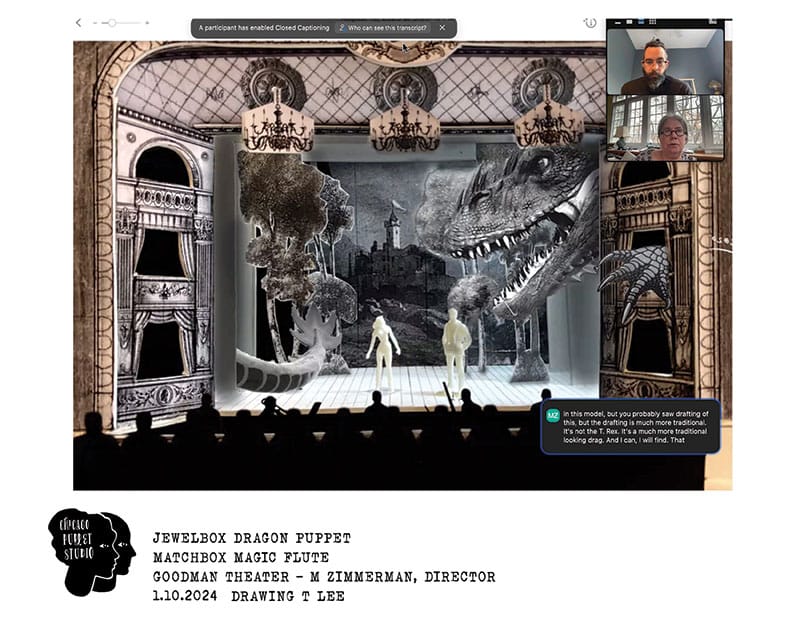
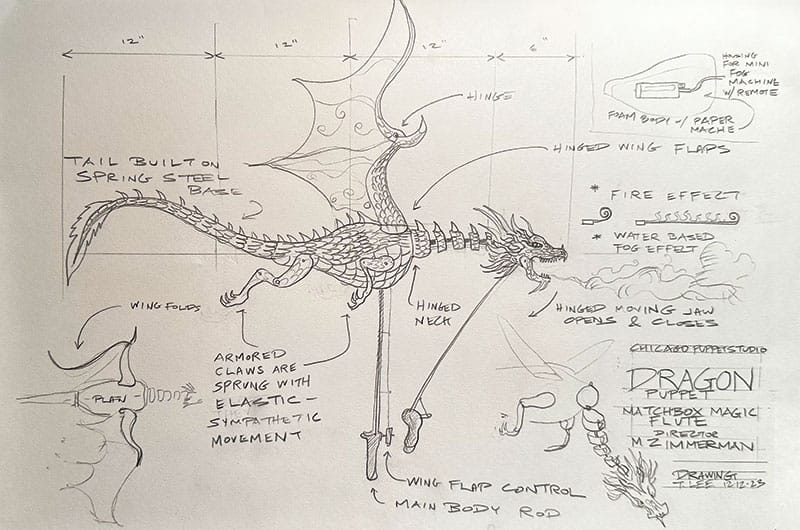
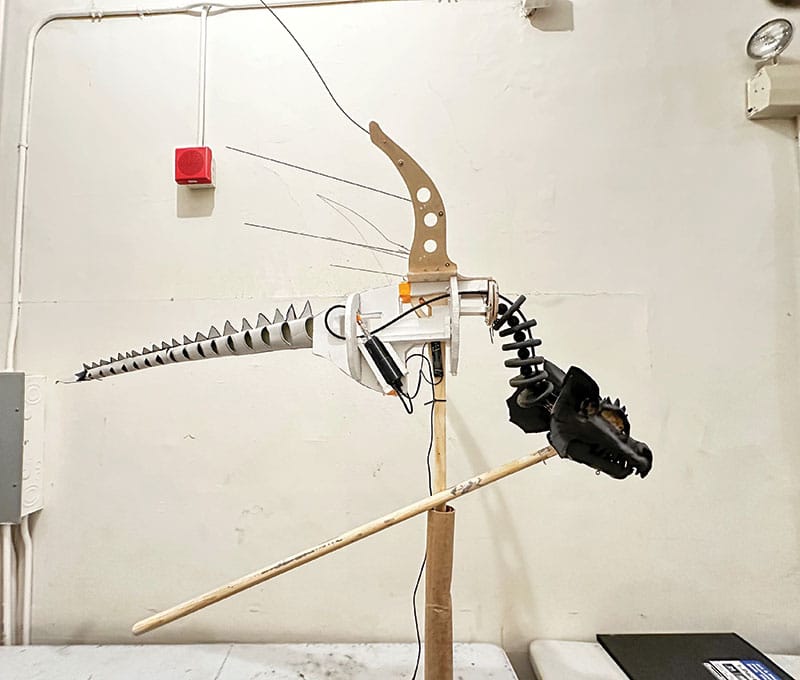
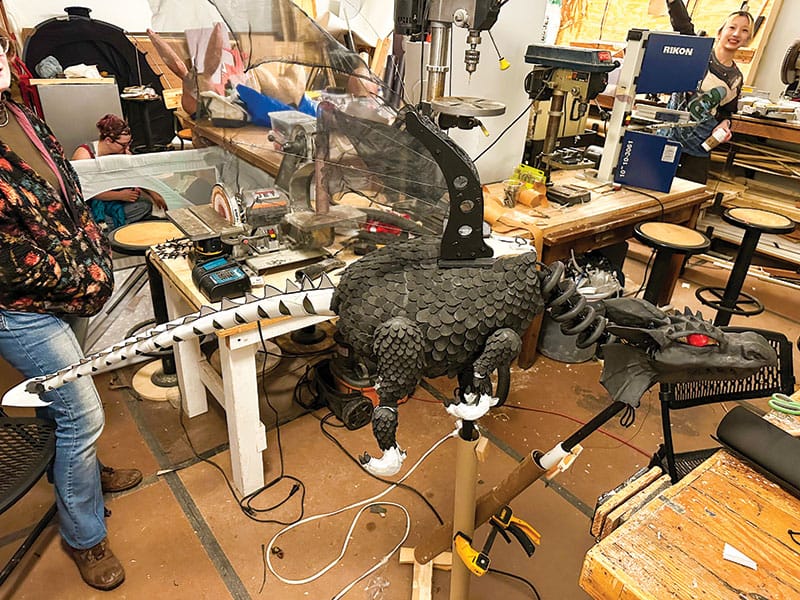
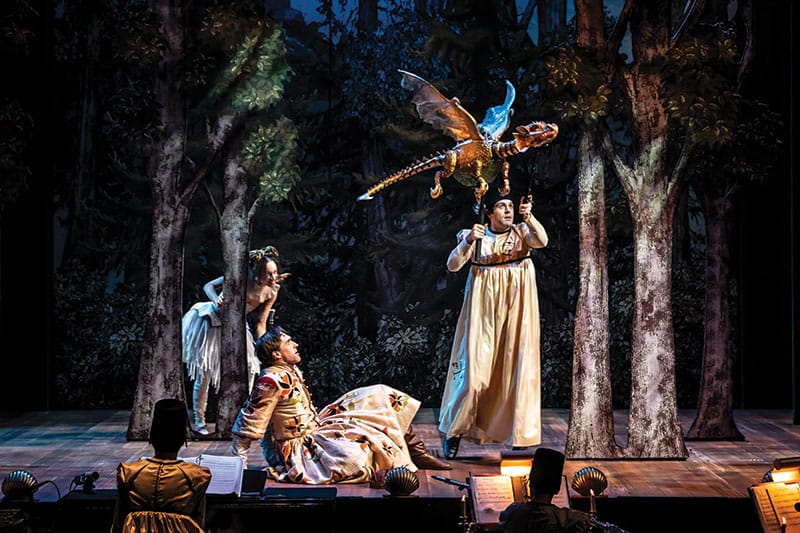
Print Edition
